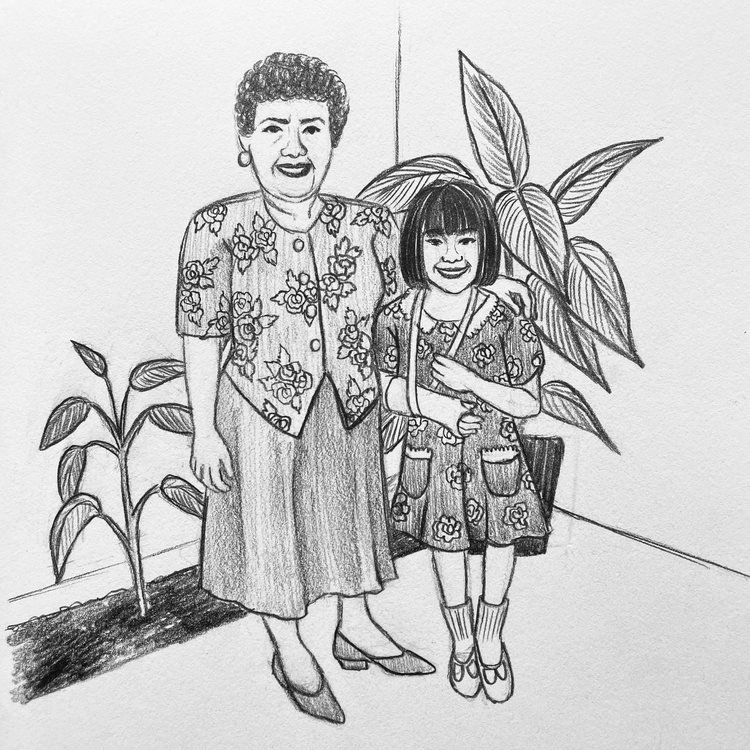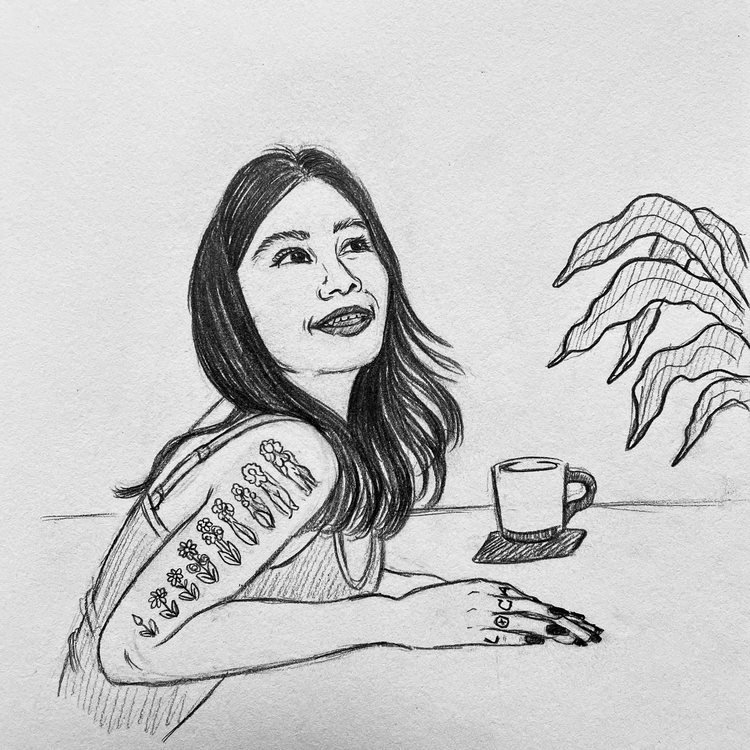Prisca Dorcas Mojica Rodríguez on our Multitudes
Prisca Dorcas Mojica Rodríguez is a hater, but reading her latest book, you wouldn’t know it.
In Tías and Primas: On Knowing and Loving the Women Who Raise Us, Mojica Rodríguez refuses to shame the women in her life for being who they are, even if they live drastically different realities.
Instead, she tenderly examines the factors that molded them—both within society and their familial structures. And, perhaps like a more knowledgeable cousin, provides guidance on how they—and by extension, anyone who can see themselves in the 20 archetypes she sets forth—can push for more. Just as importantly, she challenges all of us to do better, to hold each other with compassion so we don’t clip each others’ wings, freeing us to become the most whole versions of ourselves.
While Mojica Rodríguez is gentle throughout her second book, avoiding passing judgment on every woman who inspired this text, it doesn’t always come easily to her.
“I grew up within a really judgmental context,” she tells Intervenxions. “And I know what that did to me as a little girl and as an adult. My intrusive thoughts [are] in my mom's voice. Like, ‘You're not good enough.’ ‘Why do you think you could do that?’ ‘You're talking too much.’ And I think it's just trauma. For me to hold her with compassion, for me to hold me with compassion, it's just been therapy and healing. The more you do that, the more you start seeing other people and how it affects all of us and how it's generational. It's just been my own journey of figuring out who hurt us because that's fundamentally what's wrong here.” For women and young impressionable girls, it might, as was the case for Mojica Rodríguez, be their mothers. But it can also be a sibling, cousin, or friend.
Born in Managua, Nicaragua, Mojica Rodríguez grew up in Miami in a religious family that expected her to be more like the “prima perfecta,” or the one who does what others expect of her. But keeping quiet and doing no wrong was a burden she couldn’t carry. Instead, Mojica Rodríguez chose another—albeit just as difficult—path that felt more in line with who she was. She is outspoken and passionate about social justice, something evident in Latina Rebels, the online platform she started in 2013 that features the words “luchadoras,” “sucias,” and “malcriadas” in the bio. The account now boasts 200,000 followers on Instagram.
“ It’s just been my own journey of figuring out who hurt us because that’s fundamentally what’s wrong here.”
Another label she proudly wears is “author,” but Mojica Rodríguez didn’t always consider herself a writer. It was at the encouragement of an editor that she continued to delve into the craft and find her voice. In 2019, she contributed to a young adult anthology, Nevertheless, We Persisted: 48 Voices of Defiance, Strength, and Courage. By 2022, Seal Press released her first book, For Brown Girls with Sharp Edges and Tender Hearts: A Love Letter to Women of Color.
With Tías and Primas, it’s as though she picked up where she left off with For Brown Girls. Her second book kicks off with “la matriarch”—in Mojica Rodríguez’s case, her late grandmother Rosa Esperanza—but this story truly began with the “dignified tía.” On a visit to Miami, she was chatting with a friend recalling a woman who “holds her purse really close,” whose “chin’s always raised,” and “looks down at people.” She realized she knew someone like that, prompting her friend to say, “Yeah, they’re like a dignified, judgmental tía.”
From then on, Mojica Rodríguez started noticing the different types of tías and primas she had encountered. There were the ones who saw ghosts (“the tía who sees fantasmas”), the cool aunt she looked up to in her youth (“the young tía”), or the one who captivated all the boys’ attention (“your ‘pretty’ prima”). Many of them are her relatives—some of whom illustrator Josie Del Castillo depicts in between chapters to show the “very real women who shaped” Mojica Rodríguez—but some are not. Each archetype is a blend of different people she knows—and it’s perhaps why it feels like such a universal story. You may also know someone who is the family problem-solver or one who can’t keep her opinions about your body to herself.
If you’re familiar with Mojica Rodríguez’s work, it’s not surprising she crafted something so intimate yet general. Using the personal to amplify topics like white privilege, the patriarchy, and other topics that uniquely affect Black and brown communities is one of her gifts. She did this with Latina Rebels and with For Brown Girls.
Both her books scrutinize how sexism, classism, racism, and other isms have a profound impact on women of color. One of the main differences between For Brown Girls and Tías and Primas is how she delivers that message.
“The first book was an exercise in holding that person . . . But this [second book] was an exercise in being prescriptive.”
“In my first book, I was very hesitant about telling people what to do because my trauma response, as someone who was raised in the church and a girl meant that I was told what to wear, what to think, what everything,” she says. “So I don’t respond well to being told what to do. The first book was an exercise in holding that person: How will that person receive the context of these stories? I’m just gonna lay them out and hopefully, it’ll lead them to reflect on their own stuff. But this [second book] was an exercise in being prescriptive. People have different traumas, and trauma is complicated. Some people might respond better to direct action, direct statements.”
She doesn’t intend to stop there. Mojica Rodríguez aims to convey similar lessons in different literary formats—perhaps a YA book or a graphic novel—so she can meet many kinds of people where they are.
As she delivers these necessary, accessible texts that can catalyze change in someone’s life, her books are also helping her grow. For example, when writing the chapter on the pretty prima, she wasn’t as compassionate as she could be. “She pissed me off because I think I’ve got a lot of anger around the way that I fit into that narrative,” she says.
“People often say, when I’m done talking in my family, ‘Estaré orando por ti.’ And it’s so dismissive and it’s so angering.”
Being fair to that prima also allowed her to be fairer to herself, which is evident throughout the book. One of the most moving chapters is on “la loca,” who Mojica Rodríguez modeled partially after herself. As someone who didn’t want to contort herself to fit into the limiting box her family imposed on her, she was an outcast. However, not losing herself was more important than her family’s approval. Chapter 5 is a celebration of that achievement.
“It felt redemptive,” she says. “There was a lot of pent-up anger. I was banned from seeing my nieces at one point, so I got to put a lot of feelings on a page around being the one that gets cast away. People often say, when I'm done talking in my family, ‘Estaré orando por ti.’ And it's so dismissive and it's so angering. And the more you get angry, the more they feel emboldened by their opinions of you. So it just feels like you get trapped into this—it's maddening. So to write her . . . I got to put all that wrath somewhere that felt healthy.”
Yara Simón is a Miami-born Nicaraguan-Cuban-American editor and writer.





